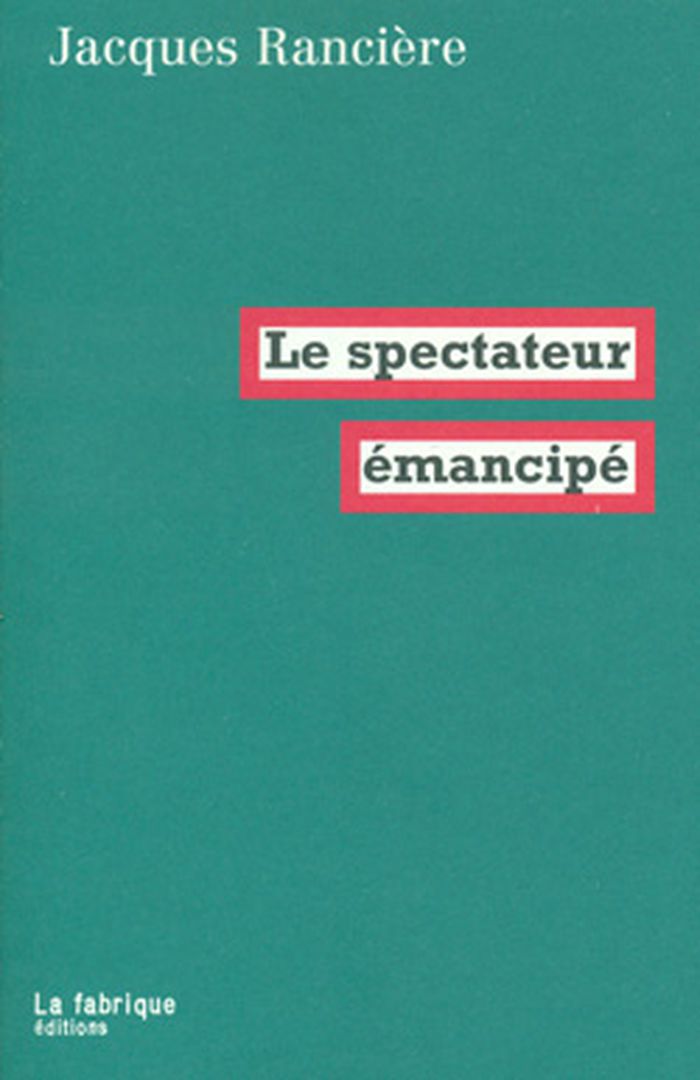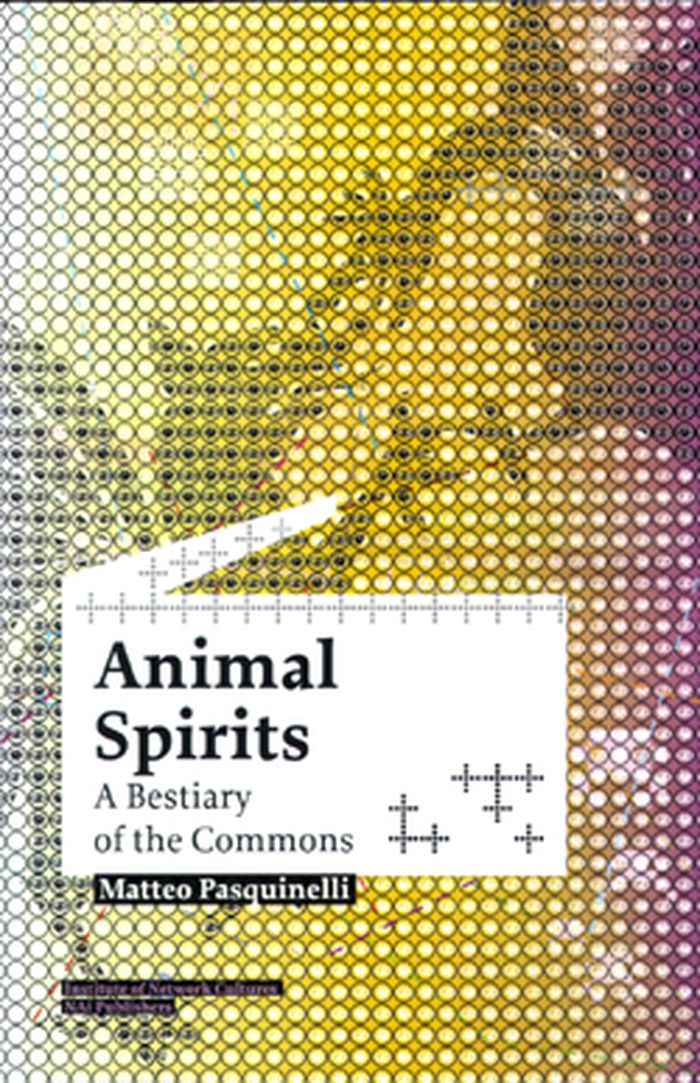Visions of utopia
$41.50
(available to order)
Summary:
In "Visions of utopia", three cultural critics look at the history of utopian thinking, exploring why they fail and why they are still worth pursuing.
January 2003, New York
Visions of utopia
Actions:
Price:
$41.50
(available to order)
Summary:
In "Visions of utopia", three cultural critics look at the history of utopian thinking, exploring why they fail and why they are still worth pursuing.
$31.00
(available to order)
Summary:
"The anti-aesthetic" is reissued now in a new paperback edition. For the past twenty years, Hal Foster has pushed the boundaries of cultural criticism, establishing a vantage point from which the seemingly disparate agendas of artists, patrons, and critics have a telling coherence. Contributors : Jean Baudrillar, Douglas Crimp, Kenneth Frampton, Jürgen Habermas, Fredric(...)
The anti-aesthetic: essays on postmodern culture
Actions:
Price:
$31.00
(available to order)
Summary:
"The anti-aesthetic" is reissued now in a new paperback edition. For the past twenty years, Hal Foster has pushed the boundaries of cultural criticism, establishing a vantage point from which the seemingly disparate agendas of artists, patrons, and critics have a telling coherence. Contributors : Jean Baudrillar, Douglas Crimp, Kenneth Frampton, Jürgen Habermas, Fredric Jameson, Rosalind Krauss, Craig Owens, Edward Said, and Gregory Ulmer. With a new afterword by Hal Foster.
Critical Theory
books
Slow is beautiful
$19.95
(available to order)
Summary:
This book analyzes the subtle consumer, political and corporate forces stamping the joy from our existence and provides a vision of a more fulfilling life through the rediscovery of caring community, unhurried leisure, and life affirming joie de vivre.
Slow is beautiful
Actions:
Price:
$19.95
(available to order)
Summary:
This book analyzes the subtle consumer, political and corporate forces stamping the joy from our existence and provides a vision of a more fulfilling life through the rediscovery of caring community, unhurried leisure, and life affirming joie de vivre.
books
October 2006
Critical Theory
books
The future of nostalgia
$27.99
(available in store)
Summary:
Combining personal memoir, philosophical essay, and historical analysis, Svetlana Boym explores the spaces of collective nostalgia that connect national biography and personal self-fashioning in the twenty-first century. She guides us through the ruins and construction sites of post-communist cities-St. Petersburg, Moscow, Berlin, and Prague-and the imagined homelands of(...)
The future of nostalgia
Actions:
Price:
$27.99
(available in store)
Summary:
Combining personal memoir, philosophical essay, and historical analysis, Svetlana Boym explores the spaces of collective nostalgia that connect national biography and personal self-fashioning in the twenty-first century. She guides us through the ruins and construction sites of post-communist cities-St. Petersburg, Moscow, Berlin, and Prague-and the imagined homelands of exiles-Benjamin, Nabokov, Mandelstahm, and Brodsky. From Jurassic Park to the Totalitarian Sculpture Garden, Boym unravels the threads of this global epidemic of longing and its antidotes.
books
April 2002, New York
Critical Theory
$11.95
(available to order)
Summary:
Première édition parue en 1921. Le travail doit être maudit, comme l'enseignement les légendes sur le paradis, tandis que la paresse doit être le but essentiel de l'homme. Mais c'est l'inverse qui s'est produit. C'est cette inversion que je voudrais tirer au clair.
La paresse comme vérité effective de l'homme
Actions:
Price:
$11.95
(available to order)
Summary:
Première édition parue en 1921. Le travail doit être maudit, comme l'enseignement les légendes sur le paradis, tandis que la paresse doit être le but essentiel de l'homme. Mais c'est l'inverse qui s'est produit. C'est cette inversion que je voudrais tirer au clair.
Critical Theory
Le spectateur émancipé
$22.95
(available to order)
Summary:
En examinant quelques formes et débats de l'art contemporain, ce livre tente de répondre aux questions: qu'entendre par art politique ou politique de l'art? Où en sommes-nous avec la tradition de l'art critique et avec le désir de mettre l'art dans la vie?
Le spectateur émancipé
Actions:
Price:
$22.95
(available to order)
Summary:
En examinant quelques formes et débats de l'art contemporain, ce livre tente de répondre aux questions: qu'entendre par art politique ou politique de l'art? Où en sommes-nous avec la tradition de l'art critique et avec le désir de mettre l'art dans la vie?
Critical Theory
The democratic paradox
$16.00
(available to order)
Summary:
The Democratic Paradox is Chantal Mouffe's most accessible and illuminating study of democracy's sharp edges, fractures, and incongruities.
The democratic paradox
Actions:
Price:
$16.00
(available to order)
Summary:
The Democratic Paradox is Chantal Mouffe's most accessible and illuminating study of democracy's sharp edges, fractures, and incongruities.
Critical Theory
$36.00
(available to order)
Summary:
During a time when pop stars become famous thanks to sex tapes that have been leaked online, it is clear that the Internet is not immune to the draw of the media. Yet art, academia and activism continue to promote the Internet as an untouched utopia. Animal Spirits: A Bestiary of the Commons addresses the double standard dominating contemporary media discourse and(...)
Animal spirits: a bestiary of the commons
Actions:
Price:
$36.00
(available to order)
Summary:
During a time when pop stars become famous thanks to sex tapes that have been leaked online, it is clear that the Internet is not immune to the draw of the media. Yet art, academia and activism continue to promote the Internet as an untouched utopia. Animal Spirits: A Bestiary of the Commons addresses the double standard dominating contemporary media discourse and shatters the myths of creative commons, free software and open-source movements, suggesting that "free culture" is an economic parasite siphoning money through peer-to-peer networks. Theorist and digital fetishist Matteo Pasquinelli uses the metaphor of the animal body--which Paul Virilio has characterized as instinctual and reactionary--to counter what he sees as a capitalist exploitation of collective imagery, calling for a radical new understanding of the forces at work behind the digital economy and cultural production.
Critical Theory
$24.00
(available to order)
Summary:
Christine Harold makes the case for a provocative new approach to combating the media supremacy of multinational corporations by co-opting the logic of capitalism itself. Exploring the revolutionary Creative Commons movement, copyleft, and open source technology, OurSpace advocates a more inclusive approach to intellectual property that invites innovation and wider(...)
OurSpace: resisting the corporate control of culture
Actions:
Price:
$24.00
(available to order)
Summary:
Christine Harold makes the case for a provocative new approach to combating the media supremacy of multinational corporations by co-opting the logic of capitalism itself. Exploring the revolutionary Creative Commons movement, copyleft, and open source technology, OurSpace advocates a more inclusive approach to intellectual property that invites innovation and wider participation in the creative process.
Critical Theory
$45.95
(available to order)
Summary:
Members of the Frankfurt School have had an enormous effect on Western thought, beginning soon after Max Horkheimer became the director of the Institute for Social Research at the University of Frankfurt am Main in 1930. Also known as the Horkheimer Circle, the group included such eminent intellectuals as Theodor Adorno, Herbert Marcuse, Erich Fromm, Leo Lowenthal, and(...)
The Frankfurt school in exile
Actions:
Price:
$45.95
(available to order)
Summary:
Members of the Frankfurt School have had an enormous effect on Western thought, beginning soon after Max Horkheimer became the director of the Institute for Social Research at the University of Frankfurt am Main in 1930. Also known as the Horkheimer Circle, the group included such eminent intellectuals as Theodor Adorno, Herbert Marcuse, Erich Fromm, Leo Lowenthal, and Friedrich Pollock. Fleeing Nazi oppression, Horkheimer moved the Institute and many of its affiliated scholars to Columbia University in 1934, where it remained until 1950. Until now, the conventional portrayal of the Institute has held that its members found refuge by relocating to Columbia but that they had little contact with, or impact on, American intellectual life. With insight and clarity, Thomas Wheatland demonstrates that the standard account is wrong. Based on deep archival research in Germany and in the United States, and on interviews conducted with luminaries such as Daniel Bell, Bernadine Dohrn, Peter Gay, Todd Gitlin, Nathan Glazer, Tom Hayden, Robert Merton, and others, Wheatland skillfully traces the profound connections between the Horkheimer Circle’s members and the intellectual life of the era. Reassessing the group’s involvement with the American New Left in the 1960s, he argues that Herbert Marcuse’s role was misunderstood in shaping the radical student movement’s agenda. More broadly, he illustrates how the Circle influenced American social thought and made an even more dramatic impression on German postwar sociology. Although much has been written about the Frankfurt School, this is the first book to closely examine the relationship between its members and their American contemporaries. The Frankfurt School in Exile uncovers an important but neglected dimension of the history of the Frankfurt School and adds immeasurably to our understanding of the contributions made by its émigrés to postwar intellectual life.
Critical Theory







